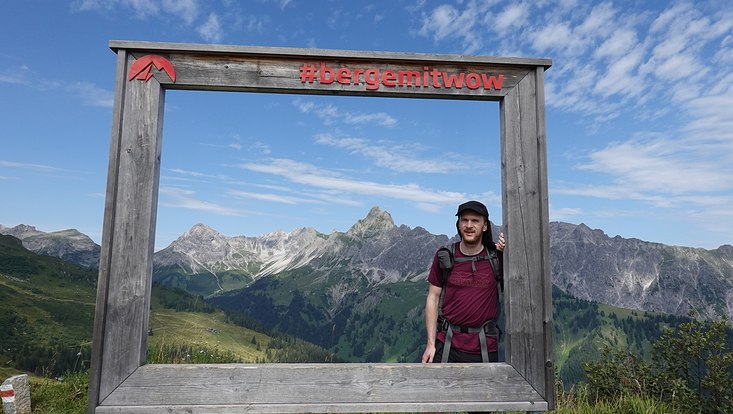Welcome Lukas Brunner at the FNK
16 May 2024

Photo: Lukas Brunner
Lukas Brunner joined the Climate Extremes group in May 2024 where he will work with Jana Sillmann and join the Cluster of Excellence “Climate, Climatic Change, and Society“ (CLICCS).
Lukas studied physics at the University of Graz in Austria, where he also received his PhD in environmental system science in 2018. During his PhD, he was a visiting scientist at the University of Edinburgh in 2016 and at the Center for International Climate Research in Oslo (CICERO) in 2017. From 2018 to 2022, he was a postdoc in the Climate Physics group at ETH Zurich, working in the frame of the Horizon 2020 project EUCP and from 2022 to 2024, he worked as senior scientist in the Climate Dynamics and Modeling group at the University of Vienna.
What is your research area?
My research focuses on better understanding temperature extremes and their drivers on the one hand and on quantifying changes in the climate system and their uncertainties on the other hand. I work with climate data from various sources such as the Coupled Model Intercomparison Project (CMIP) and various observation-based sources but also from the prototype global km-scale models that are currently being developed at MPI in Hamburg among other places.
How does this connect to the research done in the Climate Extremes group and in CLICCS?
I see several connection points, most straight forward obviously on my work on extremes and their drivers. We have recently published a paper on a methodological error in a commonly used temperature extreme definition (the so-called TX90; Brunner and Voigt 2024). As I explain in more detail, for example, in this Tweet the error can lead to an underestimation of the actual extreme frequency by up to 50% but it is currently still unclear how exactly it affects more complex metrics. It would be interesting to look into this and potentially come up with refined definitions that correct for the error.
As a second point I would mention my research on atmospheric blocking as a main driver of various extremes. I have worked extensively on that topic during my PhD and have already collaborated with Jana on a study in that area (Brunner et al. 2018).
Finally, also my work on machine learning (Brunner and Sippel 2023 and my project HighResLearn) has the potential for ample collaborations as the Climate Extremes group but also other people in Hamburg have a strong focus on climate statistics and machine learning as well.
What do you expect from Hamburg and the UHH?
I am really looking forward to ample collaborations within and beyond the University and to a vibrant research atmosphere in general. I am excited to learn about all the activities going on in the frame of the CLICCS Cluster of Excellence and to contribute my expertise and perspective.
Thank you and have a good start at FNK!


